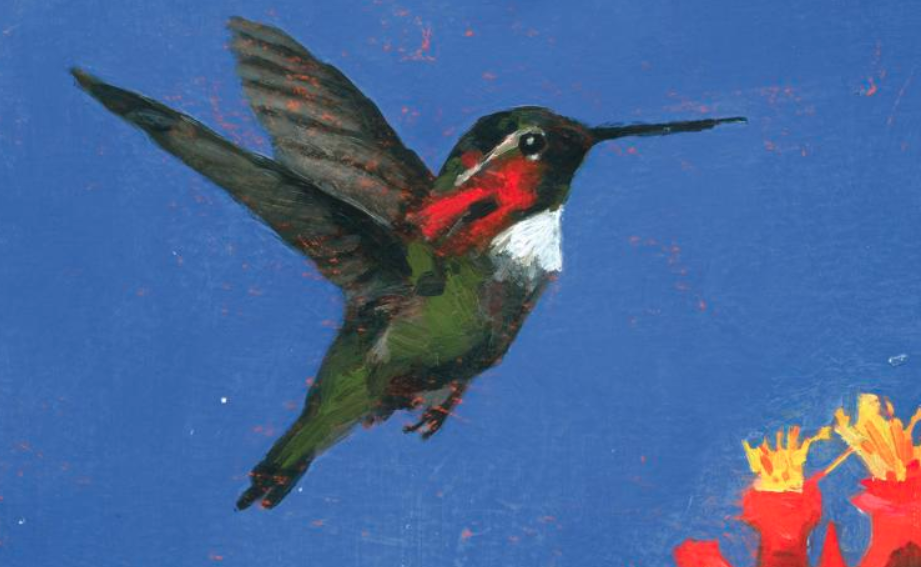The Bird Hoverer
by Aaron Belz
BlazeVOX, $14 (paper)
The impressive, loopy poems in Aaron Belz’s first full-length collection are touched by a raw grace of mind and nimble phrasing. The poems stage deft quarrels with the same pop complacencies that inspire them, as in “Hidden Microphones,” where the speaker’s enthusiasm about surveillance culture overwhelms him and he can’t help but exclaim, “I am all about hidden microphones.” Readers will find themselves rattled, delightfully, as Belz juggles the gods of the past with the gods of celebrity culture—always wired to an ethics of spectacle that resists becoming “all about hidden microphones.” The Bird Hoverer does not simply embrace its gods or only work to displace them. In “Things That Tend Not to Collapse,” for instance, readers are encouraged to test how far Belz’s ebullient metaphysics allows for things to fall apart. Similarly, “For Walt Whitman” celebrates the transcendentalism of Whitman and Coleridge while its self-reflexive underbelly admits nothing beyond the reality of the five senses. “I glare at a brick of grass,” he writes, “stunned at its insouciance.” These poems suggest that the most effective way to render subjectivity is to dramatize its deeply felt otherness—to write, as in the book’s opening poem, from “a lone bench in the dark” behind the locked gates of a park, desiring to restore everything that is unwanted. Only then, perhaps, can we see the “gorgeous sparkle” of “Michael Landon as a Melville Character” or make sense of the genius and recklessness that frames the subject of “Polanski’s Panopticon.” Belz asks us to be lucid enough to get the facts right and also to make the facts more grand than they really are: a poetics that is masterfully strange, weirdly comic, and as innovative and conventional as Aristotle’s plausible impossibilities. With their ethics of alterity, their faith in the strangeness we see in each other, these poems hover, bend back against themselves, and with charm make no pretense but to remind us that life “is a dirty secret / that literature exalts” and to wish us best of luck in everything we do.








